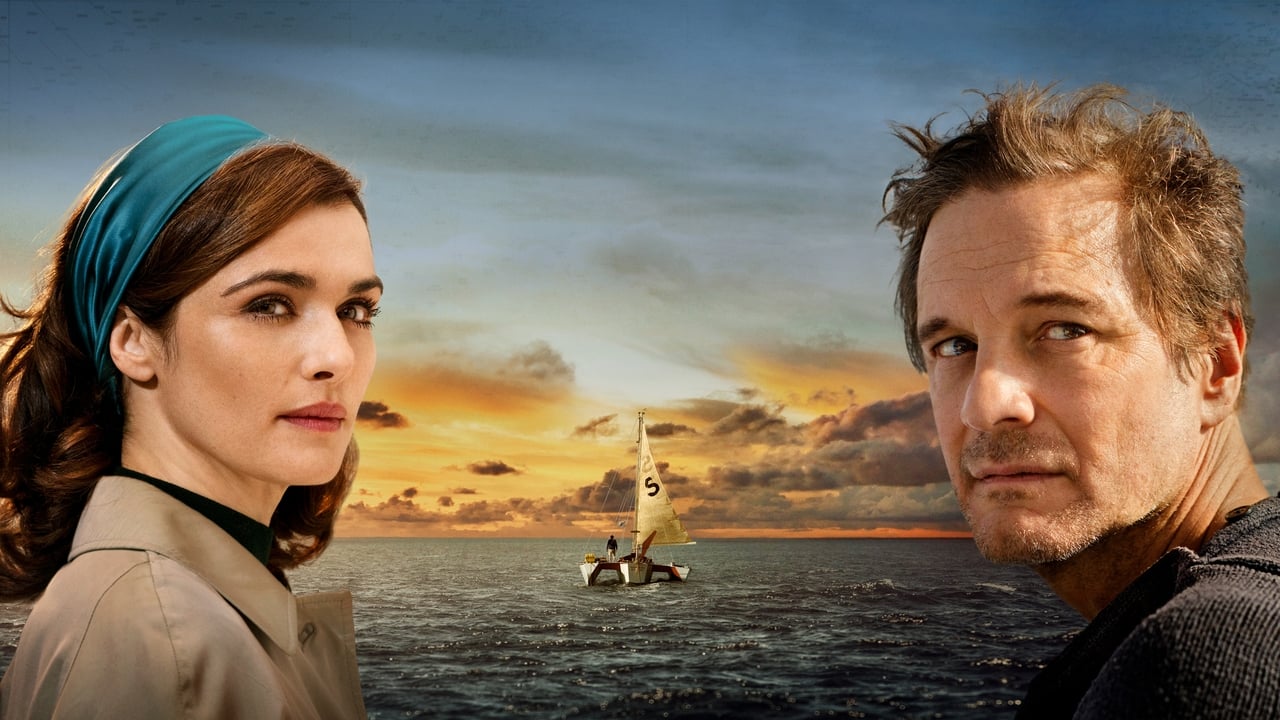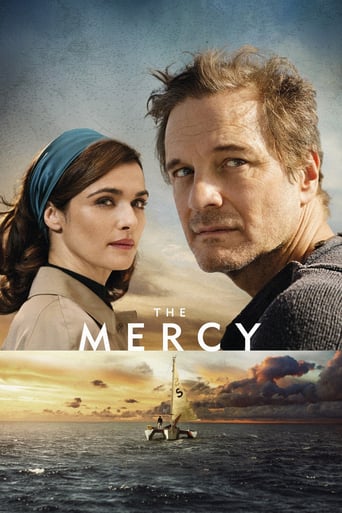



What a waste of my time!!!
Self-important, over-dramatic, uninspired.
Most undeservingly overhyped movie of all time??
The movie runs out of plot and jokes well before the end of a two-hour running time, long for a light comedy.
View MoreWhen I first saw this film, I really enjoyed it. Here's what I wrote:"I'm sure there are elements here that most people can relate to, the pressure of pride, recognition, approval, acceptance, what it means to be a man, to impress, how far you have to go to prove yourself, and why. The whole story works as a metaphor for many relationships I have known, where the limbo strains communications (literally here with a radio he chooses not to use as much for fear of 'being found out'). The editing and use of flashbacks to weave together an impression of his emotional state is a great use of cinema. Its like an analogy of imposter syndrome, taken to the extreme."I was so fascinated with the story, I read 'The Strange Voyage of Donald Crowhurst" and watched the documentary Deep Water. Then I saw The Mercy again. This time, the flatness of the film, the lack of effort, the pedestrian, workman hack-job sunday-afternoon-for-pensioners side of the writing/direction leaped out and made itself obvious. I couldn't believe I'd liked it so much before. Colin Firth is actually very miscast. He doesn't have the persuasive, determined, forceful arrogance of the real Crowhurst. Firth comes across as gentle and unassuming, not desperate for approval and recognition. The descent into madness is SO tepid in the film. On reading the book, there are so many conflicts, pressures and uncertainties that gradually crush Crowhursts mind, leading to him writing 25,000 words about becoming a cosmic being. Firth's version is asking for forgiveness and saying sorry, as though perfectly sane. Its not the real story by any means, and gives a horrid reflection of how affected Crowhurst actually was by his predicament. Unforgivably, its actually very boring on a rewatch. There is no depth or subtlety. The true story is so multifaceted and tense, its amazing to that the film is quite as flat as it is.
View MoreIt's 1968. Donald Crowhurst (Colin Firth, "Kingsman: The Golden Circle"; "Magic in the Moonlight"), an amateur sailor and entrepreneur based in Teignmouth, Devon, is inspired by listening to single-handed round-the-world yachtsman Sir Francis Chichester and does a a crazy thing. He puts his business, his family's house and his own life on the line by entering the Sunday Times single-handed round-the-world yacht race. It's not even as if he has a boat built yet! Lending him the money, under onerous terms, are local businessman Mr Best (Ken Stott, "The Hobbit") and local newspaper editor Rodney Hallworth (David Thewlis, "Wonder Woman", "The Theory of Everything"). With the race deadline upon him, Crowhurst is pressed into sailing away from his beloved wife Clare (Rachel Weisz, "Denial", "The Lobster") and young family in a trimaran that is well below par. But what happens next is so ludicrous that it makes a mockery of whoever wrote this ridiculous work of fiction. Ah... but wait a minute... it's a true story!It is in fact such an astonishing story that this is a film that is easy to spoil in a review, a fact that seems to have passed many UK newspaper reviewers by (aarrrggghhh!!). So I will leave much comment to a "spoiler section" on http://bob-the-movie-man.com. The trailer is also best avoided: this is honestly a film worth seeing cold.What can I say that is spoiler-free then? Firth and Weisz make a well-matched couple, and the rest of the cast is peppered with well-known faces from British film and (particularly) TV: Andrew Buchan and Jonathan Bailey (from "Broadchurch"); Mark Gatiss ("Sherlock", "Out Kind of Traitor"); Adrian Schiller ("Victoria"; "Beauty and the Beast").The first part of the film is well executed and excellent value for older viewers. 60's Devon is warm, bucolic and nostalgic. In fact, the film beautifully creates the late 60's of my childhood, from the boxy hardwood furniture of the Crowhurst's house to the Meccano set opened at Christmas time. Once afloat though, the film is less successful at getting its sea-legs. The story is riveting, but quite a number of the scenes raise more questions than they answer. As stress takes hold it is perhaps not surprising that there are a few fantastical flights of movie fancy. But some specific elements in Scott Burns' script don't quite gel: a brass clock overboard is a case in point. What? Why?And it seems to be light on the fallout from the race: there is a weighty scene in the trailer between Best and Hallworth that (unless I dozed off!) I don't think appeared in the final cut, and I think was needed. All in all, I was left feeling mildly dissatisfied: a potentially good film by "Theory of Everything" director James Marsh that rather goes off the rails in the final stretch. This was a time where morality and honour were often rigidly adhered to - British "stiff upper lip" and all that - and seemed to carry a lot more weight than they do today. So some of the decisions in the film might mystify younger viewers. But for the packed older audience in my showing then it was a gripping, stressful, but far from flawless watch. I'd also like to take this opportunity to pay my respects to the film's composer Jóhann Jóhannsson, who shockingly died last week at the ridiculously young age of 48. His strange and atmospheric music for films including "The Theory of Everything", "Sicario" and (particularly) "Arrival" set him on the path to be a film composing great of the future. Like James Horner, another awful and untimely loss to the film music industry.(For the full graphical review - and a spoiler section for those who have seen the film - please visit bob-the-movie-man.com. Thanks).
View MoreWhen people disappear often it is with very little trace, the world and the person's family are left wondering what happened to them, where they were and whether they will ever see them again. This was not what happened in the case of Donald Crowhurst.On October 31st 1968 Crowhurst set out on a great expedition around the world, alone, on a boat as part of the Sunday Times' Golden Globe Competition. On July 10th 1969 his boat was found, unoccupied filled with log books written by Crowhurst describing his entire journey.The Mercy is the latest telling of this real story, there having been many books, documentaries, and films made prior to it. Directed by James Marsh, written by Scott Z. Burns and with Colin Firth in the lead role this film tells the tragedy from beginning to end, presenting Crowhurst's experience as well as his wife and children's and the tale being told to the general public by the media. Visually stunning, well acted and tear-jerking, I loved this film for its sincerity and quietness allowing us into the head of a man struggling through crisis.Firth felt perfectly cast. He brought amazing subtlety to the role, his ability to convey the internal thoughts of the character simply through facial expression and gait shows his phenomenal ability as an actor. He shows the break down of Crowhurst's British 'stiff upper lip' and descent into mental breakdown with constraint and melancholia. This powerful performance bought me to tears, greatly aided by clever slow reveal cinematography and eerie sound design.And that's something I have to talk about in this film; sound design. An often neglected and unrecognised art this film used sound and silence phenomenally. It created suspense, fear and empathy; as the film progressed both the sound and silence became deafening, adding immensely to our understanding of Crowhurst's mental state. Until this film I never new how maddening simply the sound of a pencil rolling back and forth across a table could be.If I have one gripe about this film it must be this; we have yet another example of the female lead feeling under-developed and two dimensional. Although Rachel Weisz's performance as Claire Crowhurst, Donald's wife, was emotional and, too an extent, felt realistic, she looked as if she'd been plucked off a 50's fashion magazine titled 'The housewife'. This is not a criticism of Weisz as an actress but more in the direction and writing. She felt like a cartoon-ish, cardboard cut out of a woman; dressed fashionably, young and beautiful and glossy. She did not feel like the wife of a failing business owner. Personally I feel the film should've spent more time on her developing her emotional depth and character arch making the story about the entire family, or they should've had even less of her, focusing solely on Crowhurst himself. It generally felt as if they couldn't decide if Claire (and a few other of the people back on land) were main characters, supporting roles or extras, so their balance of screen time was wrong.Despite this, one of my favourite things about this film is it's beautiful sense of reality in Crowhurst himself. There is too often in all films, but significantly in biopics or the beloved based-on-a-true-story films, a tendency to paint characters as all hero or all villain. Here however Firth portrays Crowhurst as a real man; loving, over-ambitious, determined and deeply flawed but not malicious, not conniving. A director could've chosen to paint this man, this non-fictitious man, it the light or good or evil but no. Marsh chose real. And with such a sensitive story to portray this felt the most appropriate voice to give the sailor and his family. He was a real man, struggling with his sense of self, put in the face of an adversity that he could not escape. He did not succeed and win the day, he did not purposely deceive them all as part of a horrible plot, he simply.. broke. And this film showed that amazingly well.
View MoreBBC made film based on fact.Donald Crowhurst, who was married with 4 children, and an amature weekend sailor, attempted a single handed, non-stop, around the world boat race. In my opinion pushing boundaries is admirable ... BUT ...I couldn't help thinking whether a responsible bloke would really abandon their family and attempt such a dangerous lengthy challenge, when there was a 50% chance of survival? Especially when the bloke in question was unprepared, and in a boat that was practically unfinished and untested!It doesn't make any sense!On top of that, Donald was a total cheat, he stopped in Argentina to make some repairs, exaggerated his progress reports and falsified his logs. Suffered hallucinations due to deteriorating mental state and felt guilty for causing the sinking of another competitors (Nigel Tetley's) boat. Eventually could no longer maintain the lies and committed suicide due to the intense scrutiny his logs would have undergone and the overwhelming guilt. The film was well made, but I was completely irritated by Donald's attitude towards his responsibilities, and felt he probably got what he deserved in the end, hence the 5/10 score.
View More